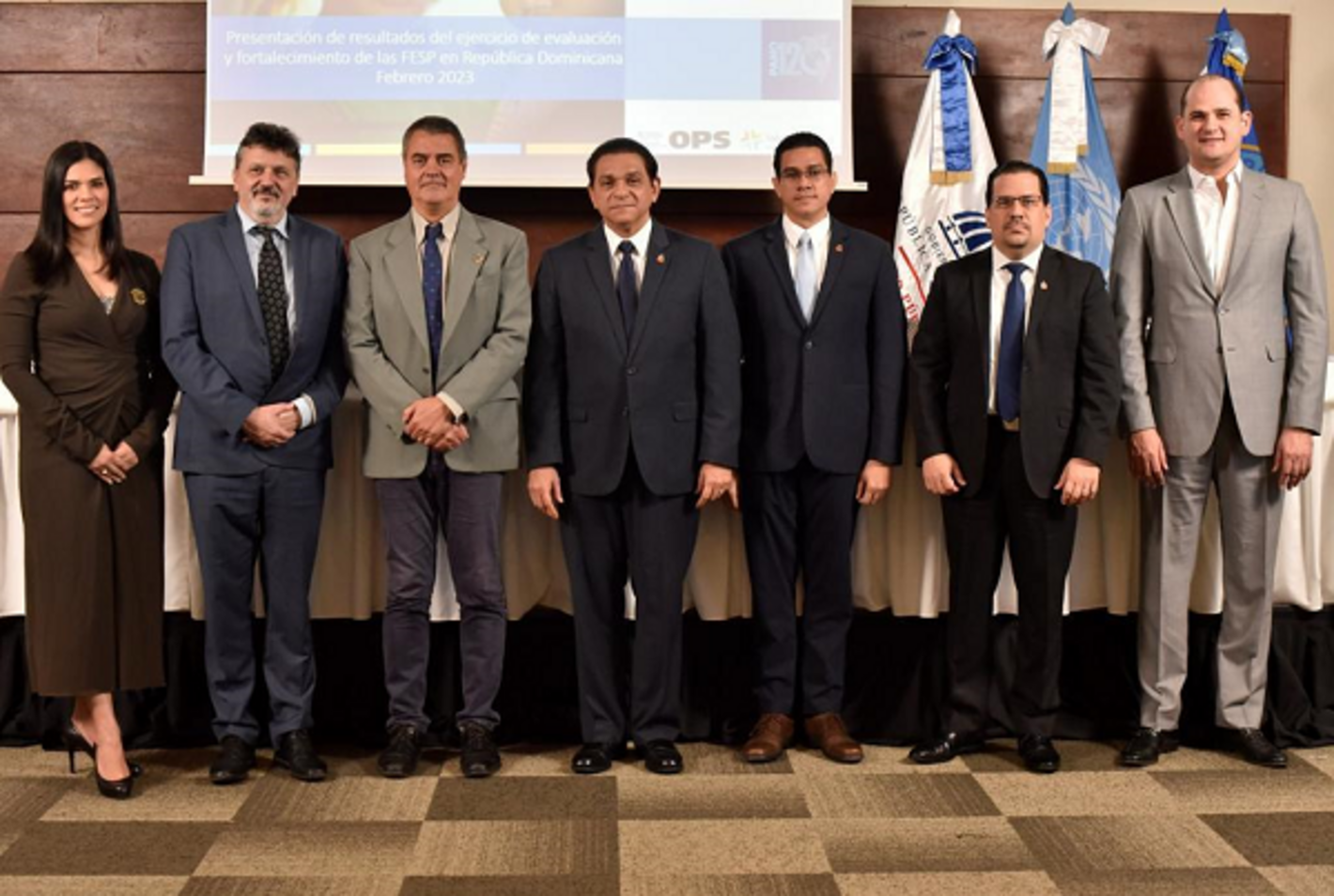
Washington D.C., February 24, 2023 (PAHO): As a result of the technical cooperation that the Pan American Health Organization (PAHO) has been carrying out together with the government of the Dominican Republic, an event was held in Santo Domingo in February to socialize the results of the evaluation and strengthening process of the Essential Public Health Functions (EPHF), which made it possible to analyze the situation of the country's health sector, identify social actors, carry out a capacity measurement and prepare an action plan with a sectoral and intersectoral agenda that proposes priority actions with a comprehensive, integrative and multisectoral vision.
Country government authorities attended the meeting, including the Minister of Public Health, Daniel Rivera Reyes; the Vice Minister of Collective Health, Eladio Pérez; the Director General of Promese/Cal, Adolfo Pérez; the Director of Sectoral Management, Mariel Meléndez; the Director of Population Health Management, Ricardo Elías Melgen; the PAHO/WHO Representative in the Dominican Republic, Oliver Ronveaux; the PAHO/WHO Health Systems and Services Advisor in the Dominican Republic, Roger Montes; and the Acting Chief of the PAHO/WHO Health Services and Access Unit, Ernesto Báscolo, in addition to participants from academia and civil society, among other strategic partners.
The Dominican Republic is part of the first round of countries that committed to strengthening their health systems from using the EPHF renewed conceptual approach, becoming one of the first countries to consolidate the methodological instruments and to complete the process by linking the results with national health policies. The evaluation exercise involved around 150 actors from more than 20 technical areas of the Ministry of Health and other institutions. It allowed for a broad intra- and intersectoral view, which accompanied this process throughout all its stages.
This process is the result of determined work, of continuous and transformative learning led by the Ministry of Health itself, which would not have been possible without the firm political commitment of the authorities and the technical and operational support of multiple actors", said Melgen. In addition, Báscolo valued the impact that the development of the renewed EPHFs in the countries is having in the field of public health practice: “we are not the same today as when we started this process; the development of these capacities that we are all acquiring for a more comprehensive vision of public health, is now less intangible”.
Finally, the Minister of Public Health added that “if public health has an impact on the stewardship function, there will be a before and after here; but we have to keep working. Today there is a new wave of health sector reforms that we are managing to strengthen the stewardship function through the fulfillment of the EPHF, which involves a commitment by the ministry and its central, intermediate and local levels”.
National authorities highlighted that the completion of such a detailed and exhaustive situation analysis -such as the EPHF exercise- has converged with the elaboration of the National Strategic Health Plan (PLANDES 2030). It has become an opportunity to plan, linking both processes and in accordance with the country’s needs and priorities, the strengthening of the stewardship and governance of the Ministry of Health, as well as the effective exercise of the health system and of public health in the country.



